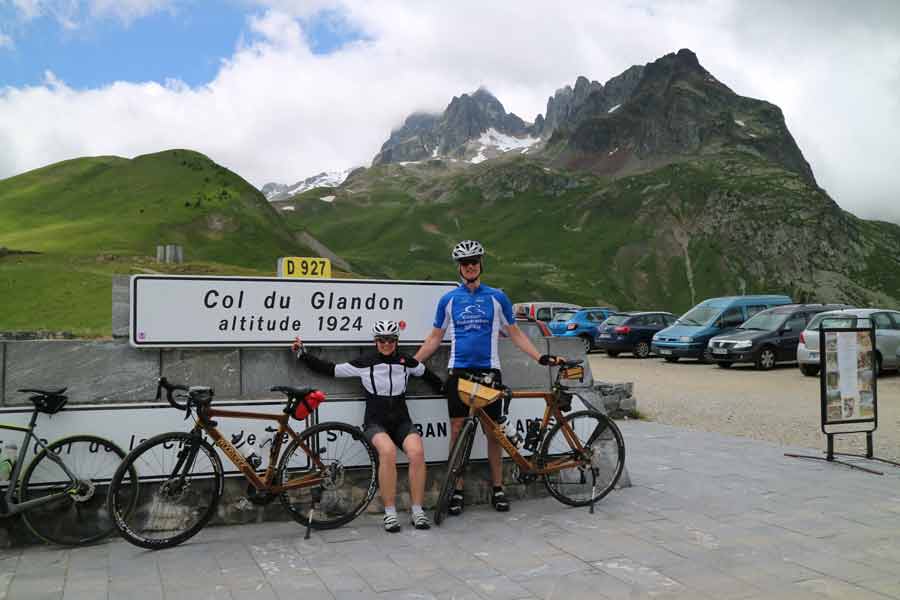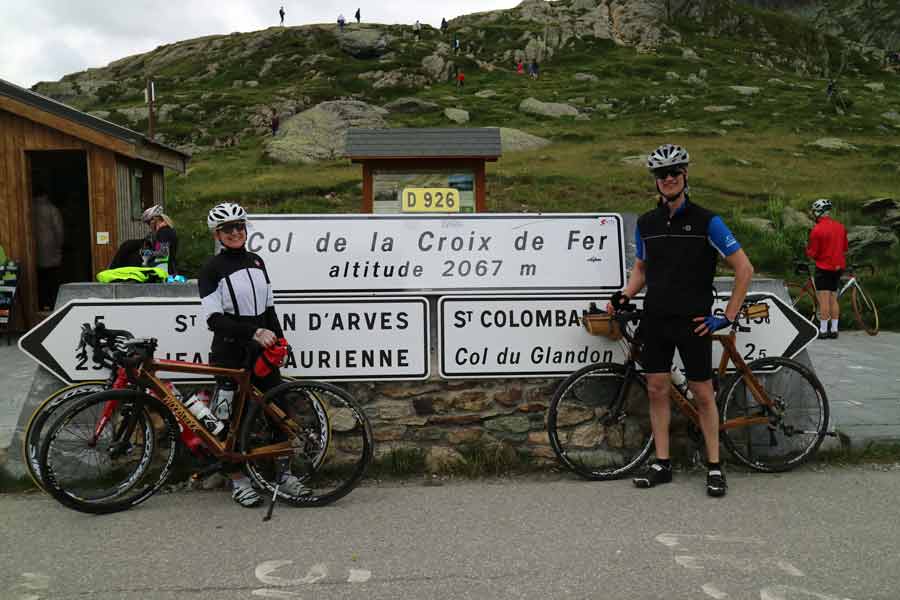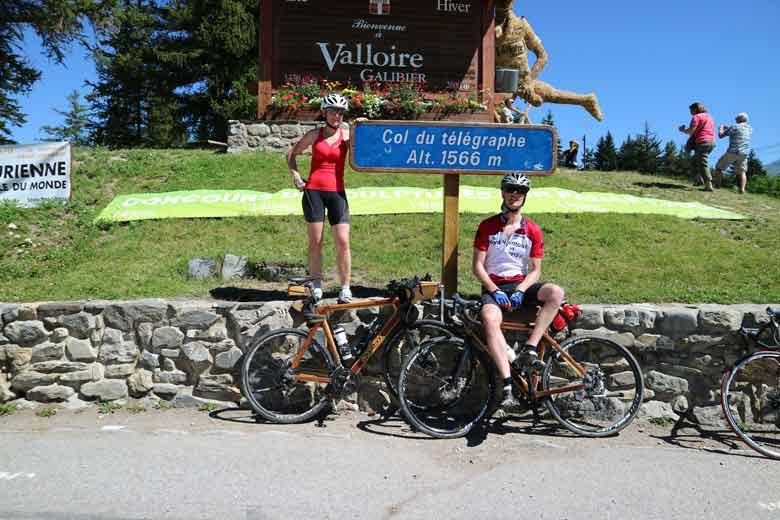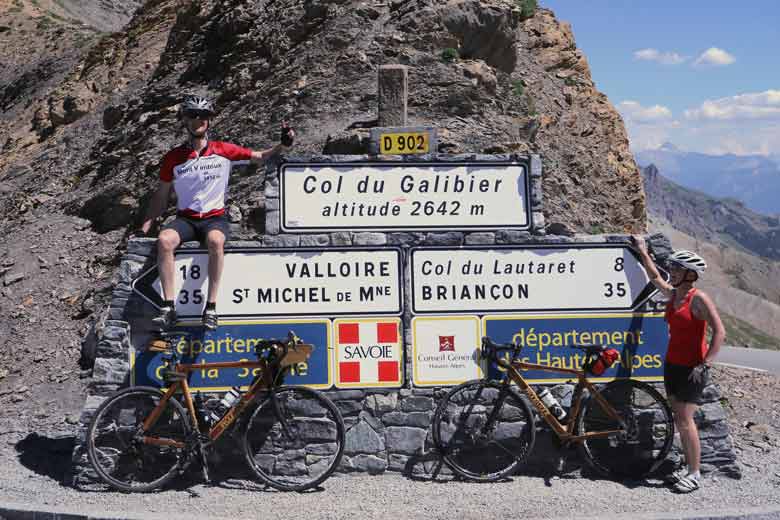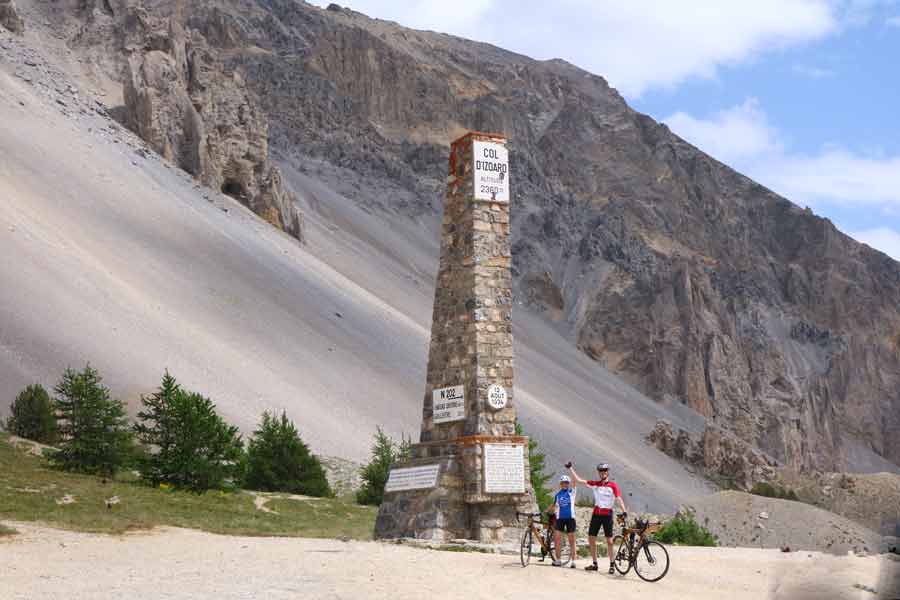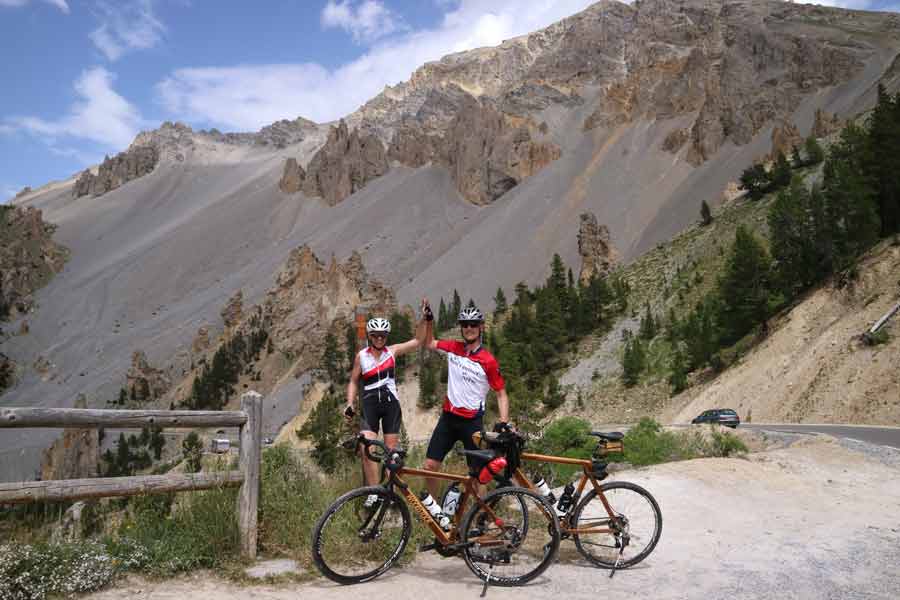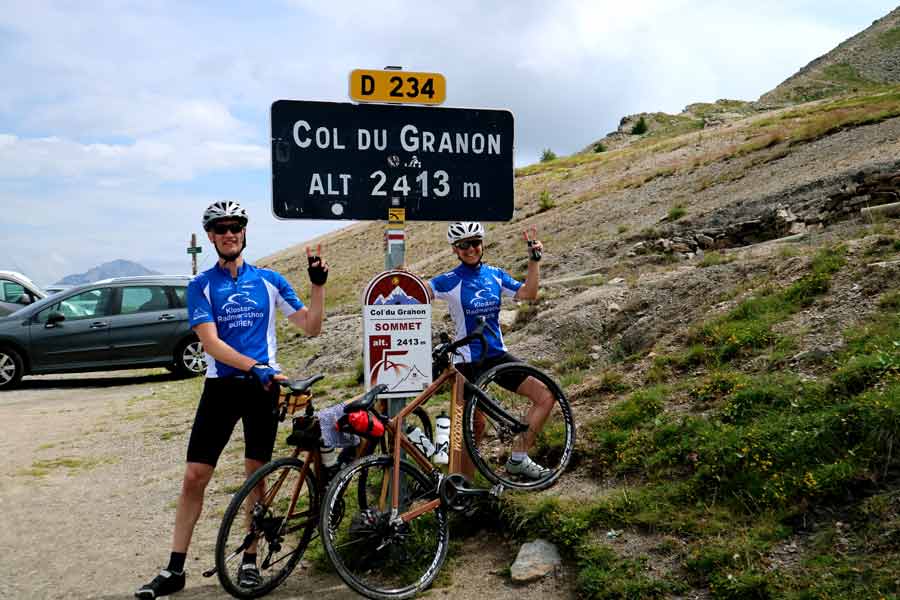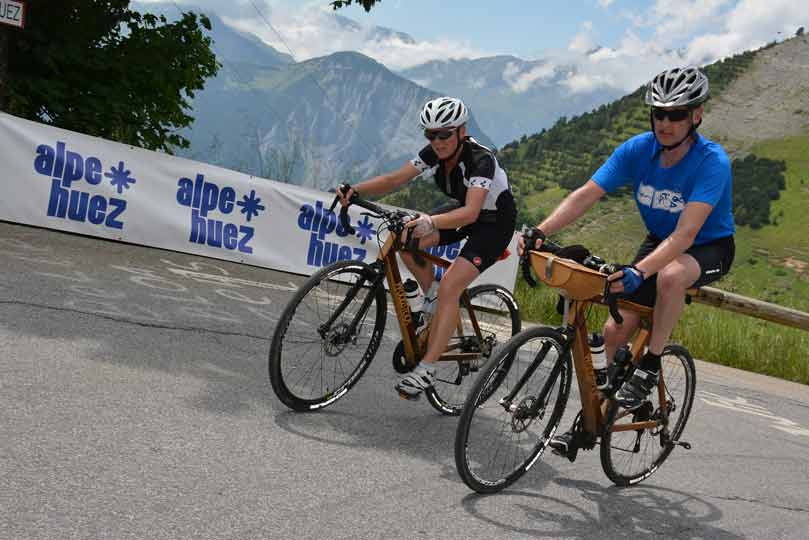|
But as different as these passes are, Mecki’s and Mike’s daily routine is always very similar. To start with, they reliably get a good night’s sleep in
their tent, thanks to the ordeal of the trip of the previous day and the red wine of the previous evening. In the morning, Mike buys two baguettes at the reception, one for breakfast and one for the trip, and the
excitement rises because they’ll soon hit the road. They pack a few last items, refill their water bottles, and assure each other how much they’d prefer cycling at a slow and relaxing pace this day because the
last trips had been so demanding, and off they go. But slow and relaxing – no way! – they start as fast as the ascent allows, for once you are on your road bike the good resolutions of the morning don’t count
much. Alpine passes want to be fought and conquered, there’s no slow or relaxing riding. On their way, Mecki and Mike have to take one or two breaks, which is not surprising keeping in mind the heat of the
summer and their “strategy” of climbing the mountain as fast as they can, but eventually they make it to the top. Up there, the spirits are always high. First they ask the other crazy cyclists if someone
wants to take the obligatory summit photo of Mecki, Mike, and their wooden bikes. Then they take a look around, enjoy the view, feel a bit like heroes, and have a talk with the other crazy cyclists. And of
course they look forward to the descent back into the valley. These descents, however, are unfortunately not very heroic. Sure, like all road bikers Mecki and Mike like the rush of adrenaline and the
thrill of speed when dashing down the mountain roads. But the prospect of arriving home safely is also not to be sneezed at, so they prefer rolling gently rather than dashing down the mountain. Which is fun,
too, but unfortunately far from heroic. “I just hope my cycling buddies back home in Rheinbach will never get to know this”, says Mecki when the speedometer of her bike displays a mere 51.8 km/h as the top
speed for the descent from the Col du Galibier. “What a shame, we are slower than on any short trip into the Eifel hills back home.” |
